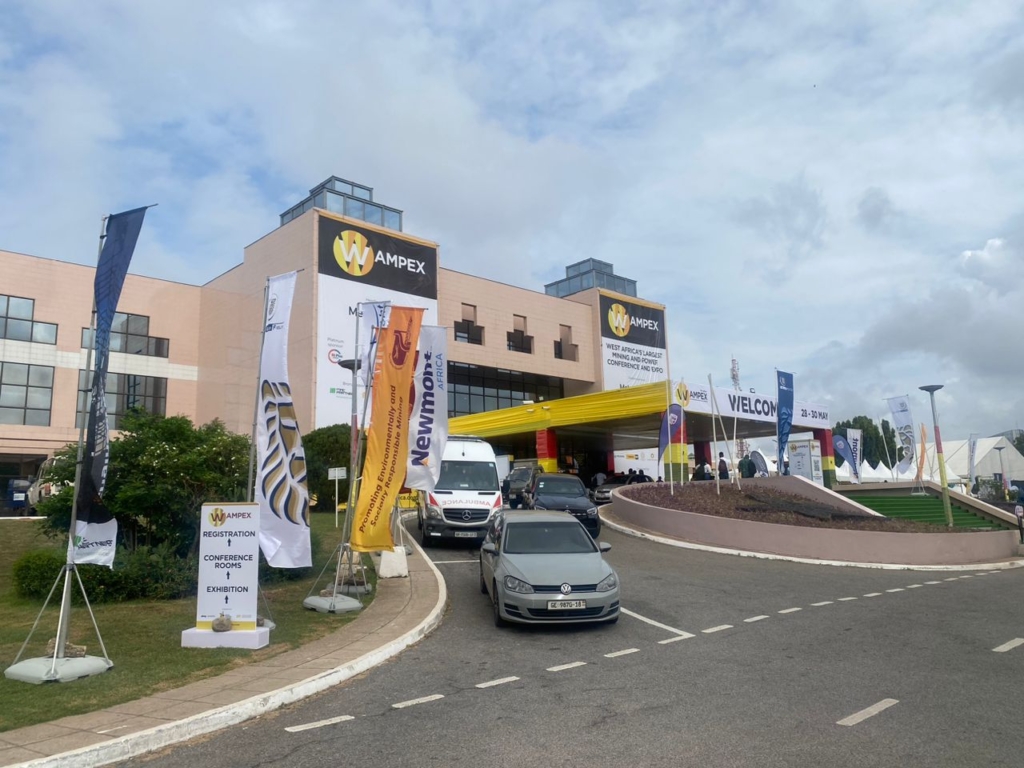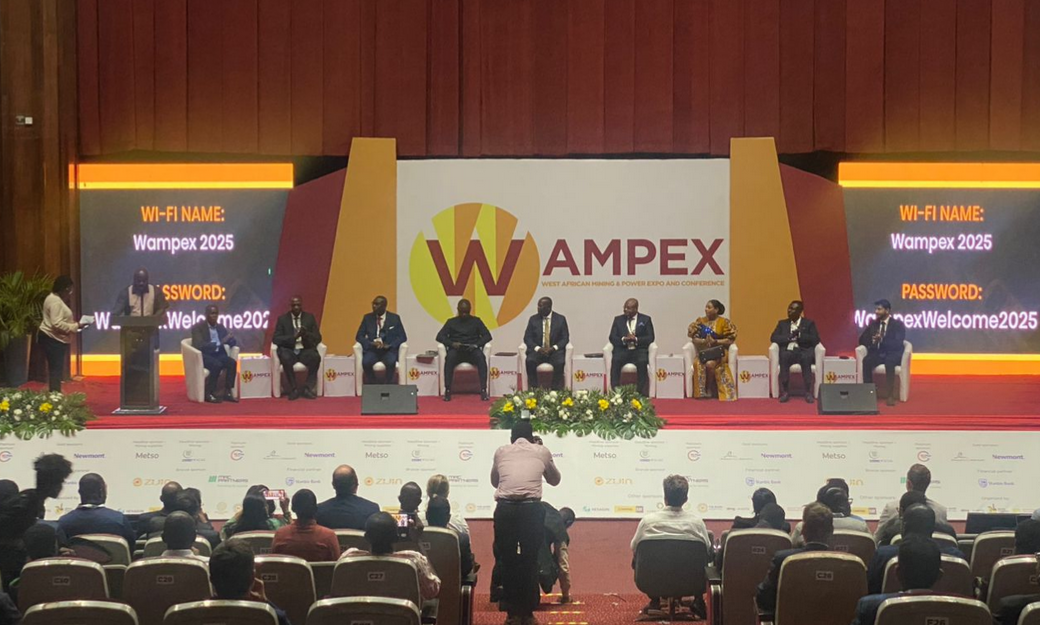Energy Minister John Jinapor has pledged to strengthen regulatory stability in Ghana’s power and petroleum sectors, announcing the resumption of offshore drilling as evidence of growing investor confidence.
Speaking at the West Africa Mining and Power Expo in Accra, the Minister outlined ambitious plans to ensure reliable electricity for industrial growth while diversifying the nation’s energy mix.
“After a very long time, drilling activities have resumed in Ghana’s offshore basin,” Mr Jinapor told attendees at the Accra International Conference Centre on May 28.
“This certainly signals renewed investor confidence in Ghana’s upstream petroleum sector as government continues to implement additional measures to revitalize the industry.”
The Minister reiterated the critical importance of stable power supply, particularly for the mining sector: “I know that if power goes up or fluctuates even for a very brief moment, it can halt most, if not all, of these activities. It could even damage equipment and lead to costly delays.”
Jinapor outlined several key initiatives, including major infrastructure upgrades and policy reforms: “We are working to ensure that this regulatory certainty, predictability for investors involves the power and petroleum sector. With partners such as GridCo and VRA, we are investing in transmission upgrades and diversifying our energy mix with more renewables, gas-to-power era and promoting battery storage.”
The Minister revealed concrete steps being taken to improve power distribution.

“I’ve granted approval to ECG, as a matter of urgency, to inject about 200 new transformers in our major capital cities, in order to ensure that we do not just generate power, but we are able to transmit that power and distribute our power to consumers in an effective and efficient manner.”
Jinapor reported positive developments in generation capacity.
“Despite the challenges we inherited, recent reports that I get show that power generation has been very stable, and we’ve even begun exporting some power. What we need to do is to continue to improve the transmission network and the distribution network.”
The Minister concluded with a call for collaboration and synergy to ensure that the mining and energy sector continues to support economic growth.
“As Minister responsible for that sector, it is my duty to ensure that we have a stable supply of power so that your machine can run optimally and efficiently.”
The announcement comes as Ghana seeks to position itself as a regional energy hub, with the three-day expo attracting thousands of mining and energy professionals from across West Africa.
Also at the opening ceremony was the Minister for Lands and Natural Resources, Emmanuel Armah-Kofi.
The WAMPEX 2025 theme is “The Mining and Power Hub: Driving Sustainable Investment Opportunities in West Africa.”
According to Mr Armah-Kofi Buah, this theme could not be more urgent because “as the world transitions to clean energy, we in West Africa face both an unparalleled opportunity and a profound responsibility.”
“This theme speaks directly to our collective challenge, how we transform our vast mineral wealth into lasting prosperity for our people, while protecting the planet we all share across our region. We stand at the historic crossroads. The global energy transition has created unprecedented demand for our critical mineral, while the urgent need for clarity demands that will retain traditional extraction models. Ghana’s experience demonstrates that these are not competing priorities, but complementary imperatives.”
Speaking on the sidelines of the event, the Acting Chief Executive Officer for the Ghana Chamber of Mines, Ahmed Dasana Nantogmah, shared his view on the ongoing review of the Minerals and Mining Act.
“I think we are aware of the plans to review the act. And like you said, it started last year, and we are still on it. So we’re having discussions, especially with the Minerals Commission, and we’re also making our own inputs into the act, because now it’s at a draft stage, and like you said, it has to be preceded by the mining policy, which we have already made inputs into the policy. So we hope that whatever inputs we have made into the mining policy will feed into the Act itself when it’s finally done.
When quizzed on the specific proposals, he explained that “There are different kind of proposals, but I wouldn’t want to preempt the act for now.’
“We just know that we are looking for a more consultative, a more interactive and more integrated mining sector, and see how we can continue to provide proper value for both shareholders and the state as well.”
Earlier this month, the Ministry of Lands and Natural Resources, through the Minerals Commission, officially commenced public consultations for the revision of Ghana’s 2014 Minerals and Mining Policy and the Minerals and Mining Act, 2006 (Act 703).
The review process reflects the government’s commitment to align Ghana’s mining regulatory framework with contemporary challenges and opportunities.
Submissions from stakeholders and the public are being welcomed until June 4, 2025.
DISCLAIMER: The Views, Comments, Opinions, Contributions and Statements made by Readers and Contributors on this platform do not necessarily represent the views or policy of Multimedia Group Limited.
DISCLAIMER: The Views, Comments, Opinions, Contributions and Statements made by Readers and Contributors on this platform do not necessarily represent the views or policy of Multimedia Group Limited.
